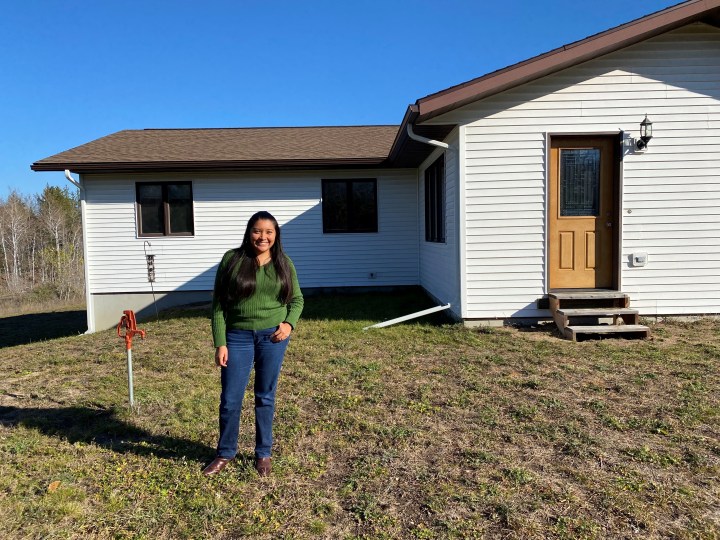
Small towns offer cash to lure telecommuters

Last year, like many Americans, Matt Fahrenbruch found himself suddenly doing his job from home. He lived in Topeka, Kansas, where he audited programs for the state Legislature.
As remote work continued during the pandemic, he began to realize that if he could work from home, then home could be anywhere he wanted. He and his wife had often thought about relocating to the Upper Midwest, where Fahrenbruch, 39, had gone to college.
“It was just a question of, ‘How are we going to end up back up here?’ Because we both have professional degrees,” he said. “We’re talking about areas that have much smaller economies.”
Earlier this year, they saw a good job for her as an urban planner with the city of Bemidji, with a population of about 15,000, in far northern Minnesota.
He then read about a program that offers $2,500 to telecommuters who move there. So he pitched the idea to his boss. He could telecommute for his Topeka job from Bemidji, Minnesota.

“And they’re like, ‘All right, let’s try this,’” he recalled. “‘We want to keep you, you know, we want to retain our talent. Let’s try this out as a pilot program.’”
In July, he moved to Bemidji with his wife and 2-year-old. And after a three-month trial run, his telecommuting job is now permanent.
The Fahrenbruchs are one of 22 families who have qualified so far for the relocation program, known as 218 Relocate (a play off the telephone area code in northern Minnesota). It’s run by the economic development organization Greater Bemidji, with funding from a local foundation and the regional internet and phone provider.
The program is one of several around the country, from northern Arkansas to West Virginia, where communities are paying people to move there. Many of them are rural areas that tout their slower pace of life, easy access to the outdoors and, often, cheaper housing.
Ben Winchester researches rural migration at the University of Minnesota. With fewer people tethered to big city offices, he said more people are moving in search of what he calls a “life-work” balance.
‘Life-work balance’
“And I say it that way because I think we have shifted away from a work-life balance to a life-work balance,” he said.
That’s a big part of Bemidji’s pitch to newcomers; it’s always been a place for people to vacation at a resort or a cabin on a lake in the Northwoods.
Bemidji also offers an all-fiber high-speed broadband network — something that even some big cities don’t have.
“The opportunity is there now for them to stay here if they choose to change their lifestyle,” said Dave Hengel, executive director of Greater Bemidji. “And I think we are in a unique time right now for that message to resonate.”

For towns like Bemidji, new residents contribute to the tax base. They also add talent to the local workforce, kids to the schools and volunteers to the broader community.
But as rural communities roll out their welcome mats, researchers like Winchester say a key challenge they face is to be welcoming to newcomers in places where locals are sometimes resistant to change.
That’s why in Bemidji, the 218 Relocate program matches newcomers up with locals with shared interests through something called the Community Concierge program.
Sarah Sanchez, who moved from Phoenix to Bemidji in the middle of winter — and in the middle of the pandemic — said that’s been a lifesaver.
“It was very difficult because everything’s closed,” she said. “How do you get connected with community when everyone’s social distancing?”
Sanchez is working remotely as a grant manager for a Phoenix nonprofit, and her husband is a youth director at a Bemidji church. She left a lot of relatives back in Arizona. But she and her husband got matched with a local family, and she said they hit it off.
“And for me, that was really like the part where I felt like there are people out here that I really connect with and that I have a lot in common with,” she said. Because of that experience, she added, “I can really see myself establishing some roots here and building relationships.”
Attracting and retaining newcomers like Sanchez is especially important for rural communities that have an aging population, and which lose younger people every year to school and jobs in larger cities.
There’s a lot happening in the world. Through it all, Marketplace is here for you.
You rely on Marketplace to break down the world’s events and tell you how it affects you in a fact-based, approachable way. We rely on your financial support to keep making that possible.
Your donation today powers the independent journalism that you rely on. For just $5/month, you can help sustain Marketplace so we can keep reporting on the things that matter to you.

















